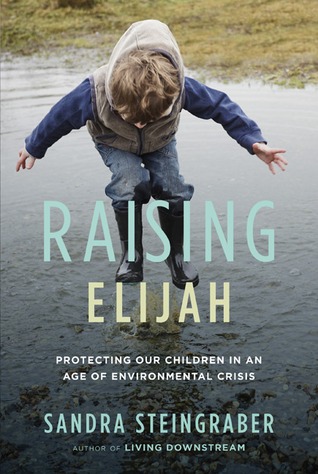We live in an age of monumental folly when it comes to the environment. The folly is running along two different and equally worrisome tracks. First, there is the destruction of the natural world, our outer environment. It is typified by the looming failure to deal with global warming, a lack of action that is likely to lead to a calamity that can scarcely be imagined. It is the most publicized environmental crisis of our age, linked to fossil fuels and known to everyone.
We live in an age of monumental folly when it comes to the environment. The folly is running along two different and equally worrisome tracks. First, there is the destruction of the natural world, our outer environment. It is typified by the looming failure to deal with global warming, a lack of action that is likely to lead to a calamity that can scarcely be imagined. It is the most publicized environmental crisis of our age, linked to fossil fuels and known to everyone.
But there is another side to our environmental crisis, a second, much more personal one, that is not as well known. It is the story about the pollutants to which we are exposed and their impact on our bodies. This is quite literally a crisis of our inner environment.
These pollutants, the most notorious of which are bisphenol A and phthalates, are also derived mainly from fossil fuels and have begun to evoke worry among many scientists. Researchers fear that the fingerprints of these chemicals are all over the modern plagues of cancers, learning disabilities in children, precocious puberty in girls and other conditions that have seemingly sprung out of nowhere in recent decades to afflict so many of us.
It is this subject that stirs the interest of Sandra Steingraber, a biologist at Ithaca College in New York, and arguably the best environment and human-health writer of our age. Steingraber is often likened to environmental icon Rachel Carson, a flattering comparison that is entirely deserved. Like Carson, Steingraber is sounding alarms about chemical pollutants in the best way she knows: through her formidable talents as a writer, storyteller and explainer of things scientific.
Raising Elijah is Steingraber’s third book about toxic chemicals and their impact on us. It recounts her efforts as mother, scientist and environmental activist to raise her son, Elijah, and, like all parents, try to protect him from this modern danger. That, unfortunately, is almost impossible for a parent to do. These chemicals are unwelcome interlopers in the cells of every living thing on the planet. They are in our air, water and food. They are in our homes, in the consumer products we buy. They are in us and in our children.
There is voluminous scientific literature on the hazards of these chemicals, but Steingraber writes that because “stories move us to action more than data alone, the scientific evidence is strapped to the hood of an autobiographical tale that begins with the birth of my son and spans the first nine years of my life as a biologist mother of two. Once I chronicled interspecies relationships in a Central American rainforest; now I seek to understand the complex habitat of my own household.”
Her explanation of how she approached this story is vintage Steingraber, whose books are nothing if not inventive and artful in delivery. Previous books took a similar approach. Her first, Living Downstream published in 1997, weaved the improbable resource of Illinois’ toxic-pollutant-release data from around her hometown with her development of cancer. Her next book, 2001’s Having Faith, followed her first pregnancy and the insidious threats to new generations from these contaminants.
What makes Steingraber’s personal stories so compelling is that they amount to some of the best explanations of why these pollutants demand our attention. Many of them mimic hormones or block actions of our hormones. That means even vanishingly small amounts are a worry. For Steingraber, they help explain why one in 10 white girls in the US begins breast development before the age of eight, and why so many children have intellectual impairments. She also contends that the genitals of boys are being demasculinized before birth by everyday exposures to a family of chemicals known as phthalates, found in everything from perfume to plastic. In short, the contaminants seem to have the ability to diminish our capacity for intelligence, and by imperilling reproduction, our link to the future.
Steingraber has a few tips for saner environmental living (use a clothesline, plant a garden and get a push mower), but says dealing with toxic contaminants and other environmental harms, like global warming, cannot be done by individuals alone. A solution requires government regulation. This is easier said than done, but Steingraber has hope. “Another world is possible,” she writes. “Creating it requires courage.”
Raising Elijah, Sandra Steingraber, Cambridge, Massachusetts: Da Capo Press, 2011, 368 pages
This review originally appeared in Rocking the Environment, Issue 37.4. Subscribe now to get more book reviews in your mailbox!
Reviewer Information
Martin Mittelstaedt is a reporter with The Globe and Mail. He has written extensively on issues of environmental concern, and was a leading voice in the media coverage of bisphenol A in Canada.













